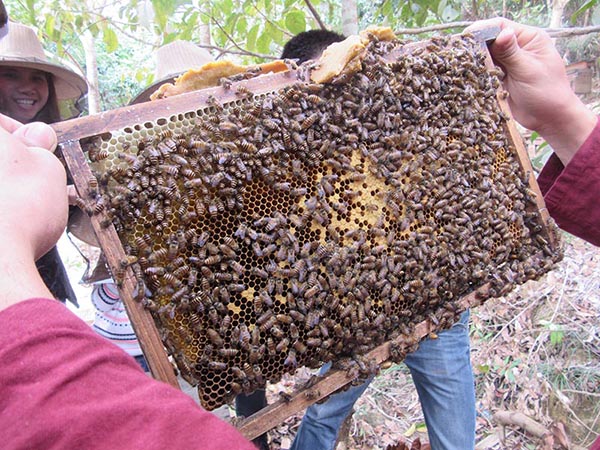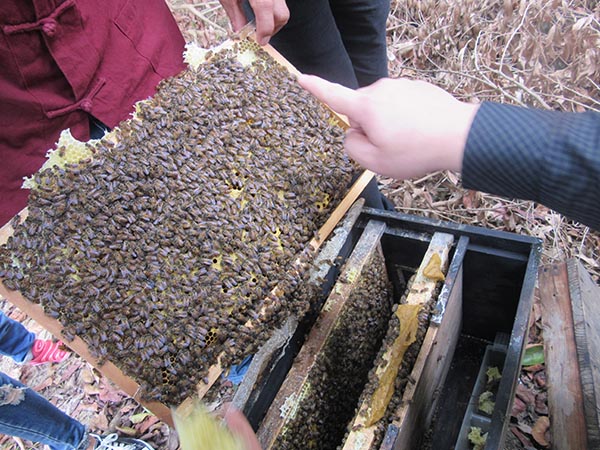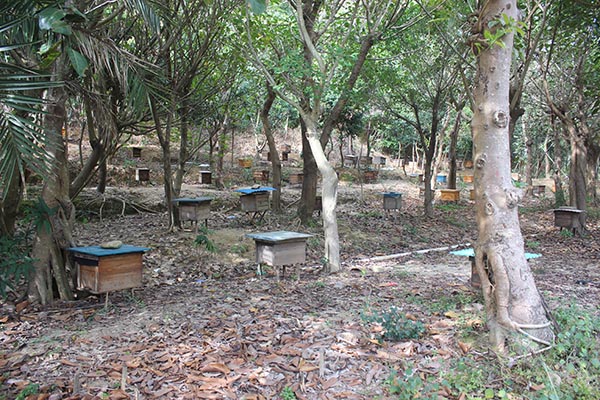Difference between wild bees and domestic bees
 Jun 09,2022
Jun 09,2022

 Lucia Ma
Lucia Ma
Friends who have collected wild bees may have found a problem. If we find that the bee colonies are not divided, the bee colonies that we often find are relatively strong, which are exactly the strong colonies we expect. It is found that it is difficult for us to raise the colony of bees that survive in the wild. What is the reason?Today, Benefitbee is here to reveal the mystery to you.

Wild bees have plenty of honey. We all know that as long as the wild bees are not found, the honey in the colony will eat enough, but our domestic bees do not have such a good life. Usually our domestic bees will collect honey in autumn, only It is to leave a small amount of honey for the bees for the winter, and it is also called the ration of bees. In the case of insufficient food, it is naturally difficult for the bee colony to develop into a strong colony, but wild bees can be said to have sufficient food, and if you want to develop a large colony, Simple.

The honey flow period is different. For wild bees, the end of the honey-flowing period means that a large amount of honey is stored in the bee colony, which can safely pass the honey-deficient period, but it is different for domestic bees. When empty, beekeepers who are in a good mood will feed the bees a little bit of fodder, while those in a bad mood will not even feed the bees with fodder.

Wild bees have a lot of overwintering fodder, without the torture of honey extraction, they can maintain a strong colony during the overwintering period and after the east. Insufficient nutrition, and even many bees are starving during the wintering period, it is naturally difficult to rejuvenate during the spring breeding period in the coming year, and the rejuvenation time is much longer than that of wild bees. For bees in the overwintering period, if the honey storage is insufficient after overwintering, the bees often save pollen and feed by reducing the number of larvae cultivated, especially in the longer winter, this phenomenon is more obvious, without the supplement of young bees, and Without enough feed, domestic bees are naturally more difficult to reproduce in spring than wild ones.

Domestic bees are delayed to the bee-splitting season. Due to the prolonged rejuvenation time of domestic bees, the bee colony did not rejuvenate directly in the bee-dividing season, but the middle-bee division was strong, and the bee-dividing was carried out when the bee-dividing season was strong or not, resulting in a smaller and smaller colony of domestic bees. Due to the sufficient number of bees in the overwintering period and sufficient feed reserves, wild bees rejuvenate very quickly during the spring breeding period. Even if the bee splitting season comes, the impact on the bee colony will not be great.




 Tel:
Tel:

 Home
Home How to deal with being stung by a bee? What should I do if I get stung by a wasp?
How to deal with being stung by a bee? What should I do if I get stung by a wasp?  You May Also Like
You May Also Like







 Tel
Tel
 Email
Email
 Address
Address







